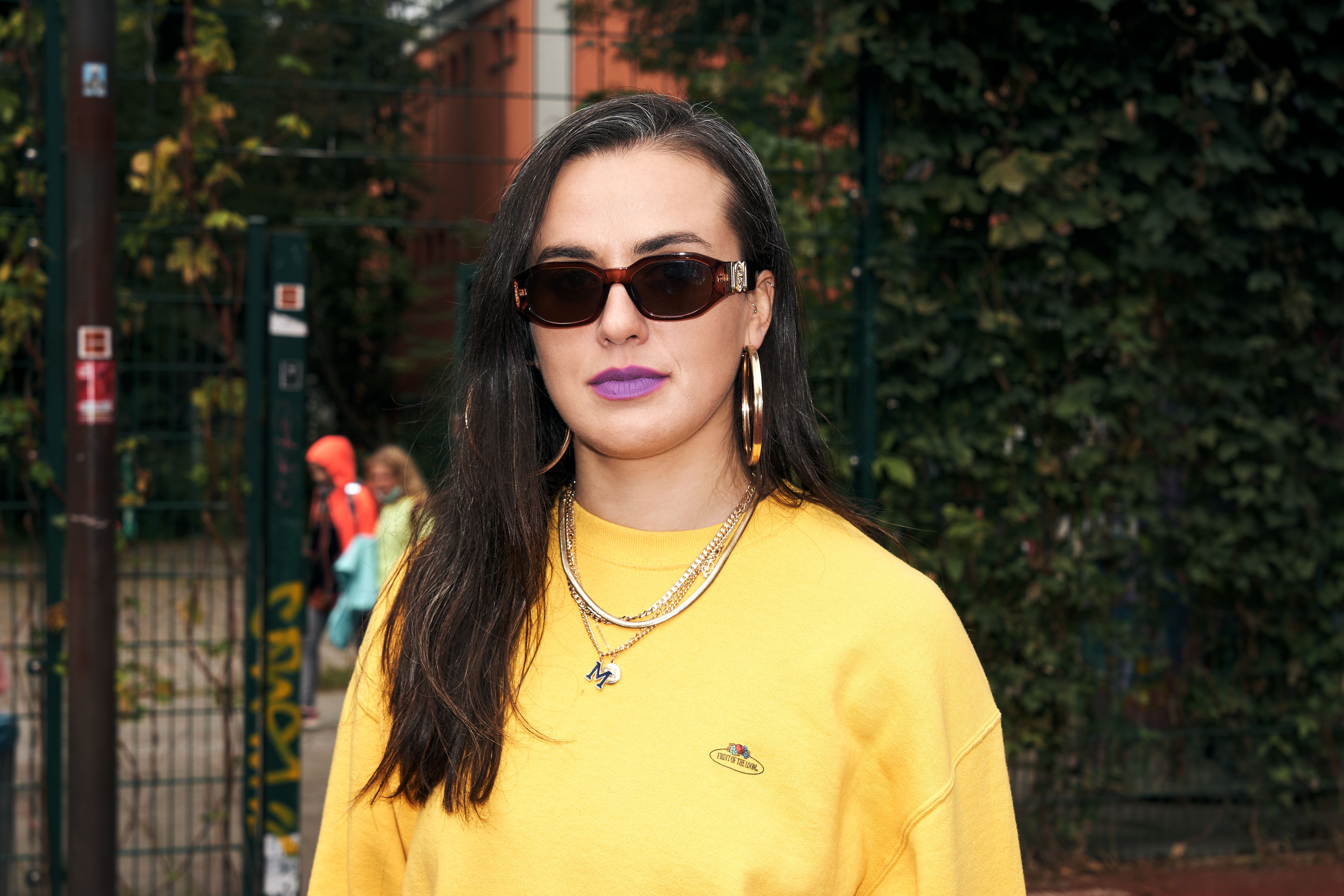Recorded during a clubnight at Hala Odra in Szczecin, Monster’s contribution to our podcast is a glimpse into her folders filled with everything from acid techno slammers through eurodance to warped pop-rap cuts. “I actually never know what I’m going to play in the next ten minutes,” says the genre-defying DJ, whose no.1 goal is to keep her audience on their toes. Monster has replied to a few of our questions, read on.
In my opinion you're one of the most characteristic DJs in Poland. Your music selection definitely stands out from the rest. How would you describe your music style and who's your DJ guru (not necessarily from Poland)?
Describing music isn’t my favorite thing to do but when I play I want people to feel carefree, full of joy. I want them to always be on their toes with excitement about what’s coming next because I actually never know what I’m going to play in the next ten minutes. This element of surprise when it comes to the genres I play is really important to me, because, as a listener myself, I love being surprised by a DJ, there’s nothing worse to me than a predictable DJ set. That’s why I can’t stick to one style.
I also appreciate so many genres of electronic music that I would feel bad if I had to limit myself to just one or two. I grew up listening to a lot of late 80’s pop and early 90’s eurodance so I love that catchy cheerful vibe in music, the genre is not important.
When it comes to gurus, I really appreciate DJs who try to do more than just DJing, whether it’s running a label, a collective or a mix series or any type of activism for their local scenes, so people like Violet, Asquith, Mama Snake, Dtekk, Feelaz are the ones I look up to.

Photograph by Asidron
You are actively taking part in many discussions within the scene, proudly representing the Oramics crew. What is the main goal behind your DJing? What do you hope to achieve and how can music specifically be instrumental in doing so?
My DJing goals have been changing over the years, but at the moment something that I really want to focus on is highlighting the Polish and Eastern European scene, because I feel we’re being overlooked and underrepresented. The scene is obviously younger and smaller than the Western scenes but there’s been a massive growth in recent years, with Poland joining the EU and people being able to travel freely. I don’t see the reason why the lineups of festivals should still consist only of names of artists coming from wealthy post-colonial countries.
We need to have a conversation about actual equal representation, we need to highlight smaller scenes that are struggling to survive because of financial resources, not because of their lack of creativity. We need to have an equal exchange of artists, not this one-way model of importing the same big names from the same rich countries over and over again. In my mixes I always try to play as much music by local artists as possible and I’ll continue to do so.
From my perspective your DJ career has accelerated after your first appearance at Unsound festival in Krakow. Was it a turning point? What other moments do you consider milestones in your development?
Definitely Unsound was a huge moment in my career, I will forever be grateful to the Unsound bookers for trusting me to play during such a crucial slot, it was absolutely nerve-wracking but totally worth it!
Joining Oramics was another milestone for me, because I suddenly stopped being a local DJ from Poznań. I started touring around Poland and getting more recognized, got to record more mixes for different labels and crews, which is always a lot of work that ultimately teaches me something as a DJ.
Recording a mix for Violet’s naive label and its landing on Pitchfork’s Mixes Of The Month feature was also huge, really made me believe in my vision even more. I’m patiently waiting for more milestones to come.


